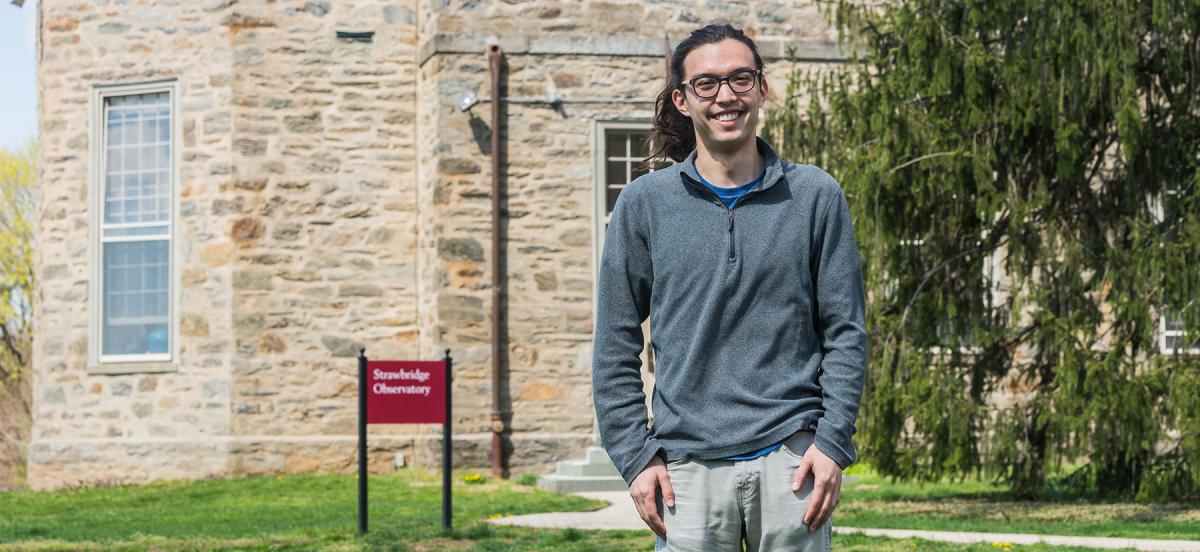Justin Otter ’19 Earns Fulbright Research Award

Justin Otter '19 in front of Haverford's Strawbridge Observatory. Photo by Patrick Montero.
Details
The physics and astronomy double major from Oakland, Calif., will spend next year conducting research at the Max Planck institute for Astronomy in Heidelberg, Germany.
The Atacama Large Millimeter/submillimeter Array, or ALMA, is a collection of 66 high-precision dish antennas in the high desert of northern Chile that are used to observe electromagnetic radiation in the universe. Justin Otter ’19 has been working with data from ALMA at Haverford as part of his senior thesis, which measures the size of disks surrounding stars forming in the Orion Nebula. After his graduation, thanks to a Fulbright U.S. Student Research Award, he will continue exploring ALMA’s vast resources from a different lab across the Atlantic Ocean.
Starting in September, the physics and astronomy double major will move to Heidelberg, Germany, for a year of research with Fabian Walter at the Max Planck Institute for Astronomy. That research will use data from ALMA’s Ultra Deep Field (UDF) survey, a highly sensitive radio image of a small area of the sky.
“This sensitivity means that the ALMA UDF can detect extremely faint and distant galaxies, which allows us to study how these galaxies, particularly their gas content, change over cosmic time,” said Otter. “Because this survey is extremely sensitive, it only covers a small area of sky, making it vulnerable to sampling bias. By combining this data set with others, I hope to gain an understanding of the large scale structure of the region in order to understand the bias of this survey.”
The Fulbright Award gives him an opportunity to continue his exploration of radio astronomy, which he began last summer at his job at the National Radio Astronomy Observatory in New Mexico and that he continued for his thesis research, under the guidance of an international expert in the field. Otter, who is also minoring in mathematics at Haverford, has already been accepted to Ph.D. program in astrophysics at Johns Hopkins University, which he will begin after his Fulbright year, and he sees his upcoming research experience in Germany as important preparation.
“Having another year of research experience is extremely valuable before going to graduate school,” he said. “During my Fulbright I'll be able to explore my academic interests as well as learn new techniques and methods I could apply to future projects. Also, building international connections is especially important in a close-knit field like astronomy which relies heavily on collaboration.”
Other connections he hopes to make overseas include getting to know some of his local family.
“My father's parents immigrated to the United States from Germany, so I met some of my father's cousins and my great aunts and uncles… last summer, when I had the opportunity to visit Germany for the first time,” said Otter. “Many of them live within a couple hours driving distance from Heidelberg, so I'm definitely looking forward to spending more time with them, and learning more about my family history!”
Read more about Fords who have won fellowships, scholarships, or grants.



